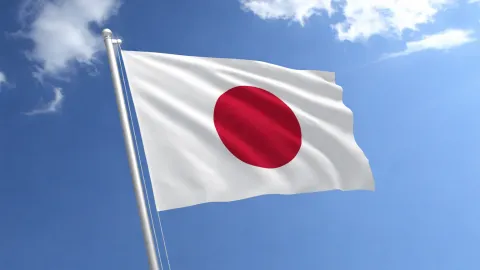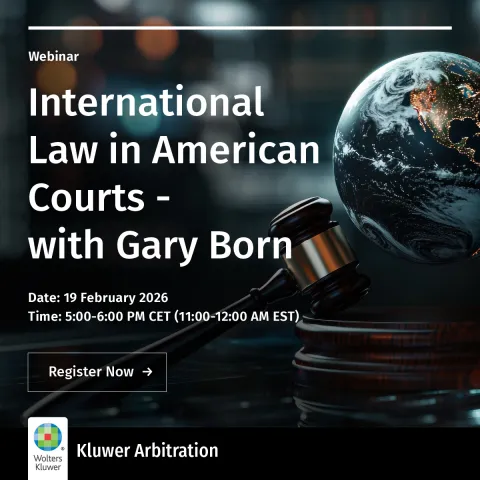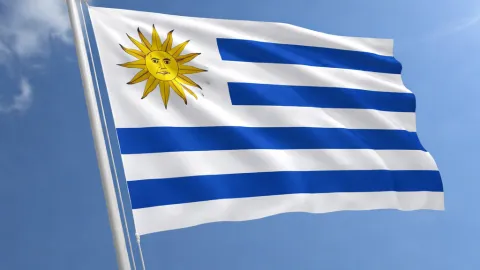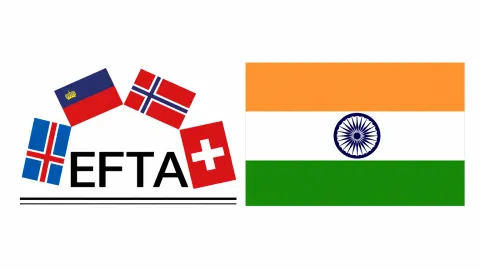Arbitrator Independence and Impartiality under Article 6(1) ECHR: The Norwegian Perspective on the Concept of "Unequivocal Waiver"
October 31, 2025
Can a party who voluntarily enters into an arbitration agreement be said to have waived or forgone its right to an independent and impartial tribunal guaranteed under Article 6(1) of the European Convention on Human Rights (“Article 6(1)”) simply because it has not raised an objection on the basis of that right during the arbitration proceeding? This post discusses the recent Mo Industrial Park (2025) decision, where the Norwegian Supreme Court had an opportunity to address this question.
The Voluntary Paradigm and the Unequivocal Waiver
Over the past decade, the European Court of Human Rights (the “ECHR”) has refined its approach to Article 6(1) in the context of arbitration, distinguishing between two paradigms, i.e. "mandatory" and "voluntary" arbitration.
Mandatory arbitration cases are those where the consent of at least one of the parties might have been forced or vitiated in some other way, such as arbitration required by the rules of a sports association or some other authority to which a professional sportsperson has little or no choice but to subscribe to if they wish to carry on with their trade. In these cases, the ECHR has held that fair trial safeguards, including the requirement of an impartial and independent adjudication enshrined in Article 6(1), apply as they would before national courts (Mutu and Pechstein v Switzerland (2017)).
Voluntary arbitration occurs when two or more parties—typically commercial parties—have voluntarily entered into an arbitration agreement. Those cases have been afforded different treatment by the ECHR, and rightly so. Since Suovaniemi v Finland (1999), the Court has consistently held that, as a matter of principle, parties may waive their rights under Article 6(1)—provided the waiver is "free, lawful and unequivocal" and complies with "minimum guarantees commensurate to its importance". If a purported waiver does not meet those requirements, Article 6(1) will apply with full force also in cases of voluntary arbitration.
However, the notion of “unequivocal” waiver raises questions. The ECHR’s practice shows that this notion must extend beyond an unvitiated consent to resolve a legal dispute through arbitration, as recorded in an arbitration agreement—otherwise this requirement would have no substance in the context of voluntary arbitration. Rather, this notion appears to reflect a party's acquiescence of an arbitrator's role in the arbitration despite there being grounds to challenge that role on the basis of a lack of independence or impartiality.
Despite these developments, a key issue has persisted: is there a time limit for raising such challenges, failing which a waiver will be deemed unequivocal?
A Temporal Limit to the Concept of Waiver?
Three ECHR decisions rendered in the context of voluntary arbitration might be interpreted to suggest that a challenge to an arbitrator’s independence and impartiality must be raised during the arbitration for the waiver not to be unequivocal.
In Suovaniemi v Finland (1999) the ECHR found the waiver unequivocal because the applicant, although knowing the grounds for challenge three years prior to the rendering of the award, had refrained from challenging that arbitrator during the arbitration. In that regard, the ECHR reasoned:
"In the present case and insofar as concerns arbitrator M., the Court considers that the waiver made during the arbitration proceedings was unequivocal within the meaning of the case-law cited. Not only was the submission to arbitration voluntary but, in addition, during the proceedings before the arbitrators the applicants clearly abstained from pursuing their challenge against arbitrator M."
This approach was later confirmed even more clearly in Mutu and Pechstein v Switzerland (2017):
"In this connection, the Court would refer to its decision in Suovaniemi … where it took the view that the applicants' choice to have recourse to arbitration had not only been voluntary, because they had freely accepted the arbitration agreement, but also 'unequivocal', because they had not sought the withdrawal, during the arbitral proceedings, of the arbitrator whose independence and impartiality they were challenging" (our emphasis).
More recently, in BEG SPA v Italy (2021) the ECHR concluded that the award debtor had not unequivocally waived its rights under Article 6(1). In doing so, the ECHR heavily relied on the Italian Court of Cassation’s finding that the award debtor's challenge "as to the nullity of the award" had been launched during the arbitration proceeding. However, there is an inherent and fundamental tension in this finding, given that annulment proceedings presuppose the prior issuance of an award, which is also the point in time that tends to mark the conclusion of the proceedings.
This finding appears also to be at odds with the ECHR's own summary of facts, which suggests that annulment proceedings were lodged in the Italian courts about a year after the award had been rendered. The ECHR's apparent insistence on applying this factual finding—however strained it may be—might be read to suggest that the ECHR felt bound by a temporal limit with regard to the concept of unequivocal waiver, requiring arbitrator challenges to be lodged during arbitration proceedings. Nevertheless, the ECHR does not address this question in detail, and so its position on whether such a temporal limit exists remains somewhat opaque.
The Norwegian Perspective
In Mo Industrial Park (2025), the Norwegian Supreme Court was presented with an opportunity to address whether such a temporal limit applies to arbitrator challenges in the context of a voluntary arbitration. The challenge in this case was brought three months after the conclusion of the arbitration proceeding. The award creditor argued that the ECHR jurisprudence on this issue was wholly irrelevant because the award debtor had unequivocally waived its right to an independent and impartial tribunal under Article 6(1). If a temporal limit of the kind described above did exist, this submission would have prevailed.
However, the Supreme Court drew on the ECHR jurisprudence and fully applied Article 6(1), seemingly rejecting the award creditor's submission:
"[T]he requirement in Article 6(1) of the European Convention on Human Rights for independence and impartiality will also apply to arbitration, unless the parties have unequivocally . . . voluntarily waived this protection, cf. the European Court of Human Rights' judgment of 20 May 2021 Beg S.p.a. v Italy, paragraph 135 onwards. As far as I can see, neither this judgment nor other ECtHR practice on arbitration provides any basis to say that the content of the impartiality requirement generally deviates from that which applies to the ordinary courts."
So, it appears that the Supreme Court implicitly accepts that rights under Article 6(1) continue to apply to voluntary arbitrations even if no challenge on the grounds of independence and impartiality has been brought during the arbitration.
The Supreme Court's approach to this issue is correct as a matter of principle. The concept of unequivocal waiver in the context of voluntary arbitration refers to a party's acquiescence to an arbitrator's role in the arbitration. For that acquiescence to have any substance, the relevant party must possess some level of pre-existing knowledge of the circumstances giving rise to a right to challenge the arbitrator. Such knowledge should be the starting point when determining whether rights under Article 6(1) have been unequivocally waived.
Final Reflections
However, this enquiry is not entirely free of a temporal dimension, nor should it be. This temporal dimension should not consist of considering whether a challenge was brought during or after the arbitral proceeding. Such an approach is too simplistic, and its logic falls apart at closer examination. There is no principled reason why rights under Article 6(1) should cease to apply simply because the arbitration has concluded, provided that the party bringing the challenge was not aware of the relevant circumstances for a sufficiently lengthy period of time before raising its challenge so as to be said to have truly waived its right to the tribunal's independence and impartiality.
This analysis is also consistent with the cases referred to above. In Mutu and the Mo Industrial Park cases, the challenges were launched within a matter of a few short weeks after the award debtors had acquired the relevant knowledge. Although in BEG the challenge against the award had not been brought until much later, the award debtor appears to have challenged the arbitrator immediately after acquiring the relevant knowledge. The conclusion that there had been no unequivocal waiver of the rights under Article 6(1) in those three cases seems undoubtedly correct. In Suovaniemi, however, the award debtor had been aware of the relevant circumstances for three years, which was sufficient to deem its waiver unequivocal.
In due time, courts will inevitably face cases that will fall between these two extremes, which will raise further questions. For example, would a failure from invoking the rights under Article 6(1) within 3, 6 or 12 months from acquiring the relevant knowledge suffice to bar a challenge? Should the degree of acceptable delay be wholly determined by the law of the seat? More detailed guidance in this regard from the ECHR would be greatly welcomed.
You may also like











